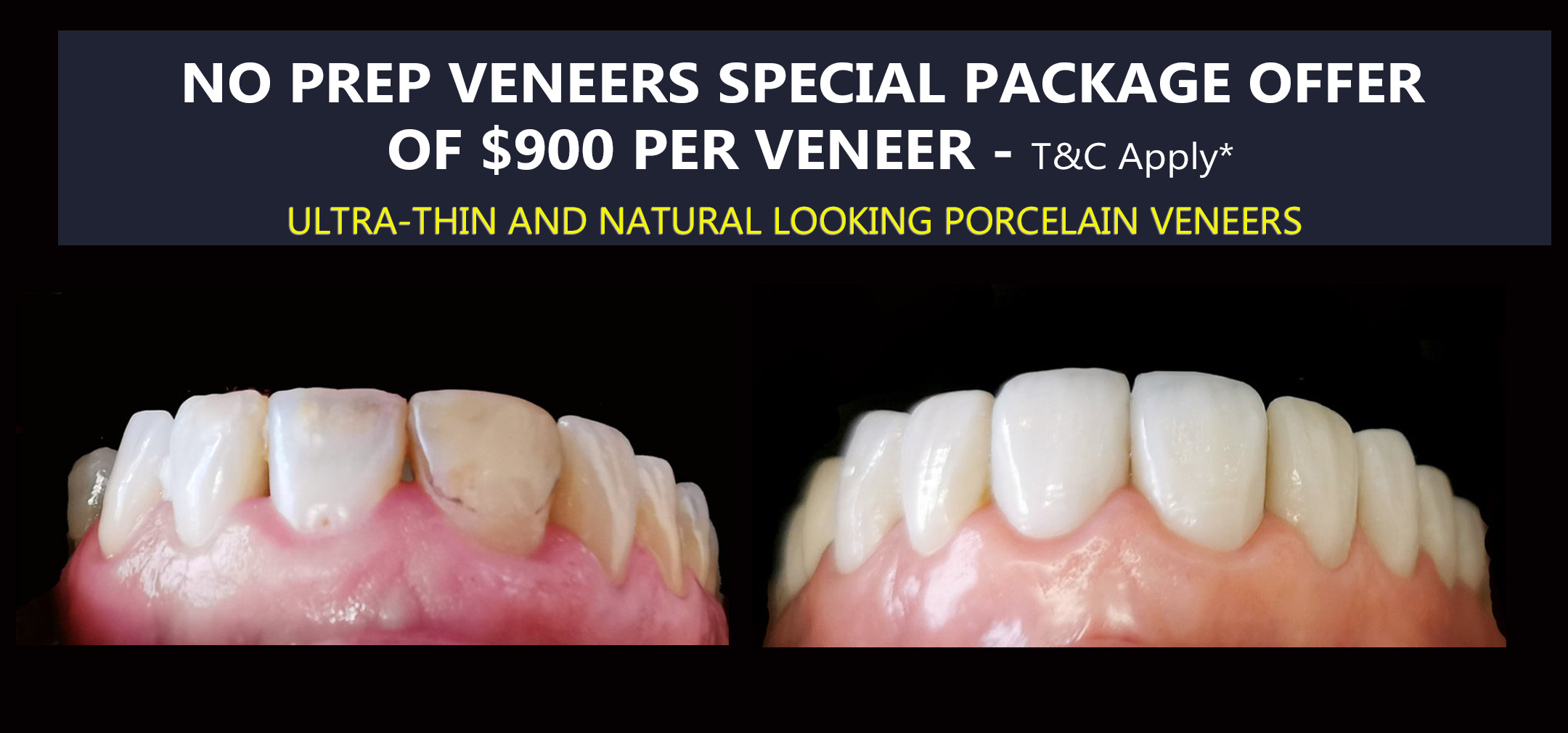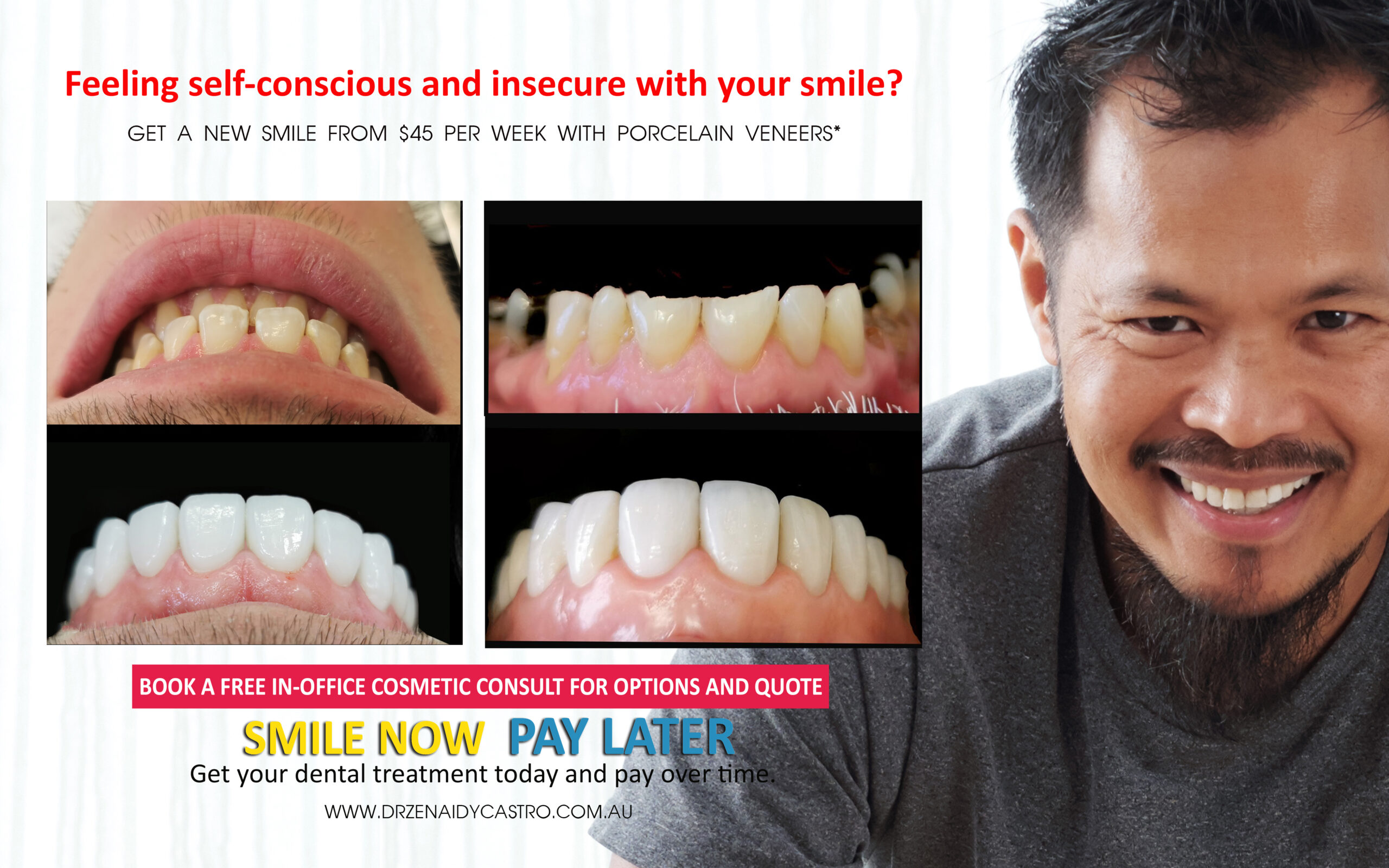

✨Comprehensive pregnancy dental health guide for expecting mothers
✨Safe dental treatments during pregnancy at Melbourne CBD & Noble Park North
✨Expert advice on maintaining healthy teeth and gums throughout pregnancy
✨Address common concerns about pregnancy dental complications
✨Professional guidance on preventing pregnancy-related dental issues
✨Evidence-based information from trusted dental professionals
✨Practical tips for daily oral care during pregnancy
✨Understanding hormonal changes and their impact on oral health
Pregnancy brings incredible joy and anticipation, but it also comes with unique health considerations that many expectant mothers don’t fully understand. Your oral health during pregnancy isn’t just about maintaining a beautiful smile – it’s directly connected to your overall health and your baby’s wellbeing. At our Melbourne CBD & Noble Park North locations, we understand the concerns and questions that arise when you’re expecting.
Many pregnant women worry about dental treatments, wonder if their teeth will be affected, or notice changes in their gums that cause alarm. These concerns are completely normal and addressing them early can prevent serious complications. This comprehensive pregnancy and dental health guide will provide you with the knowledge and confidence you need to maintain excellent oral health throughout your pregnancy journey.
Understanding Pregnancy and Teeth Connection
Your pregnancy affects every system in your body, including your mouth. The hormonal changes that support your growing baby also create an environment that can challenge your oral health. Understanding this connection helps you take proactive steps to protect both your teeth and your baby’s health.
Estrogen and progesterone levels increase dramatically during pregnancy, reaching levels 10 to 30 times higher than normal. These hormones affect how your body responds to bacteria in your mouth, making your gums more sensitive and prone to inflammation. This doesn’t mean you’re destined for dental problems – it simply means you need to be more vigilant about your oral care routine.
Research shows that pregnant women with gum disease face higher risks of:
- Preterm birth
- Low birth weight babies
- Preeclampsia
- Gestational diabetes complications
The good news is that maintaining excellent oral health during pregnancy is entirely achievable with the right knowledge and professional support. Our team at Melbourne CBD & Noble Park North specializes in pregnancy dental care and can guide you through every step of your journey.
Pregnancy and Gum Health: What to Expect
Pregnancy gingivitis affects up to 70% of pregnant women, making it one of the most common oral health issues during this time. You might notice your gums becoming red, swollen, or tender, especially during the second trimester. Some women experience bleeding when brushing or flossing, which can be alarming but is often manageable with proper care.
The condition develops because pregnancy hormones make your gums react more strongly to plaque bacteria. Even if you maintained perfect oral hygiene before pregnancy, you might still notice changes in your gum health. This isn’t a reflection of poor dental care – it’s simply your body’s response to hormonal fluctuations.
Signs of pregnancy gingivitis include:
- Red, swollen gums
- Bleeding during brushing or flossing
- Tender or sensitive gums
- Bad breath that doesn’t improve with brushing
- Metallic taste in your mouth
Left untreated, pregnancy gingivitis can progress to more serious gum disease, which poses risks to both you and your baby. However, with proper care and professional guidance from our Melbourne CBD & Noble Park North team, you can prevent and manage these issues effectively.
Pregnancy Epulis: Understanding Gum Growths
Some pregnant women develop what’s called a pregnancy epulis or pregnancy tumor – despite the name, these are completely benign growths. These small, red bumps appear on the gums, usually between teeth, and can bleed easily when touched. While they might look concerning, pregnancy epulides are harmless and typically disappear after delivery.
These growths develop due to hormonal changes and increased blood flow to the gums. They’re more likely to occur if you have existing gum irritation or plaque buildup. While they don’t require treatment during pregnancy, maintaining excellent oral hygiene can prevent them from becoming larger or more bothersome.
LOOKING AFTER YOUR TEETH AND GUMS DURING PREGNANCY
Maintaining excellent oral health during pregnancy requires a comprehensive approach that goes beyond basic brushing and flossing. Your pregnancy and dental health guide should include specific strategies that address the unique challenges of this time.
Daily Oral Care Routine for Pregnant Women
Your daily oral care routine becomes even more important during pregnancy. Here’s what our Melbourne CBD & Noble Park North dental experts recommend:
Morning Routine:
- Brush with fluoride toothpaste for two full minutes
- Use a soft-bristled toothbrush to protect sensitive gums
- Floss gently between all teeth
- Rinse with an alcohol-free mouthwash
- Wait at least 30 minutes after morning sickness before brushing
Evening Routine:
- Brush thoroughly before bed
- Floss to remove food particles and plaque
- Consider using a fluoride rinse for extra protection
- Clean your tongue with a tongue scraper or toothbrush
If you experience morning sickness, rinse your mouth with water or a baking soda solution (1 teaspoon in 8 ounces of water) immediately after vomiting. This helps neutralize stomach acid that can erode tooth enamel. Wait at least 30 minutes before brushing to avoid damaging softened enamel.
Nutrition for Healthy Teeth During Pregnancy
What you eat during pregnancy affects both your oral health and your baby’s developing teeth. Your baby’s teeth begin forming during the sixth week of pregnancy, making proper nutrition crucial from the very beginning.
Teeth-Friendly Foods to Include:
- Dairy products rich in calcium and phosphorus
- Leafy green vegetables for vitamins and minerals
- Lean proteins for tissue development
- Fresh fruits high in vitamin C
- Whole grains for B vitamins
- Nuts and seeds for healthy fats and minerals
Foods to Limit or Avoid:
- Sugary snacks and drinks
- Sticky candies that cling to teeth
- Acidic foods and beverages
- Processed foods high in refined sugars
- Frequent snacking without proper oral care
If you experience pregnancy cravings for sweets, try to satisfy them with healthier alternatives like fresh fruit or yogurt. When you do indulge, rinse your mouth with water afterward and brush your teeth when possible.
Managing Morning Sickness and Oral Health
Morning sickness affects up to 80% of pregnant women and can significantly impact oral health. Frequent vomiting exposes teeth to stomach acid, which can erode enamel and increase cavity risk. Here’s how to protect your teeth during this challenging time:
Immediate Care After Vomiting:
- Rinse mouth with water or baking soda solution
- Chew sugar-free gum to stimulate saliva production
- Wait 30-60 minutes before brushing
- Use a soft-bristled toothbrush when you do brush
- Consider using a fluoride rinse for extra protection
Prevention Strategies:
- Eat small, frequent meals to avoid empty stomach
- Keep crackers by your bedside for morning nausea
- Stay hydrated throughout the day
- Avoid triggers that worsen nausea
- Consider vitamin B6 supplements (consult your doctor first)
WHICH DENTAL TREATMENTS ARE SAFE WHEN YOU’RE PREGNANT?
One of the most common concerns in our pregnancy and dental health guide involves the safety of dental treatments during pregnancy. Many women worry about X-rays, medications, and procedures, but the truth is that most routine dental care is not only safe but recommended during pregnancy.
Safe Dental Treatments During Pregnancy
The American Dental Association and American College of Obstetricians and Gynecologists agree that routine dental care is safe throughout pregnancy. In fact, maintaining your dental health is crucial for both you and your baby’s wellbeing.
Recommended Treatments:
- Routine cleanings and examinations
- Fillings for cavities
- Root canals if necessary
- Periodontal therapy for gum disease
- Dental X-rays with proper shielding
- Local anesthesia when needed
- Antibiotics when prescribed by your dentist
The second trimester (weeks 14-20) is often considered the ideal time for dental treatments. During this period, morning sickness has typically subsided, and you’re not yet experiencing the discomfort of late pregnancy. However, urgent dental problems should be addressed immediately, regardless of trimester.
Dental X-rays During Pregnancy
Many pregnant women worry about dental X-rays, but modern digital X-rays are extremely safe during pregnancy. The radiation exposure from dental X-rays is minimal and poses no significant risk to you or your developing baby when proper precautions are taken.
Safety Measures:
- Lead apron covering your abdomen and chest
- Thyroid collar for additional protection
- Digital X-rays that use 90% less radiation
- Targeted X-rays only when necessary for diagnosis
- Inform your dentist about your pregnancy
At our Melbourne CBD & Noble Park North locations, we use the latest digital X-ray technology and follow strict safety protocols to ensure your peace of mind during pregnancy. Unless it is absolutely necessary, we defer taking xray.
Medications and Anesthesia
Local anesthesia used in dental procedures is safe during pregnancy. Lidocaine, the most commonly used dental anesthetic, is classified as a Category B drug by the FDA, meaning it’s considered safe for use during pregnancy. The amount used in dental procedures is minimal and doesn’t cross the placenta in significant quantities.
Safe Pain Management Options:
- Acetaminophen (Tylenol) for mild pain
- Local anesthesia during procedures
- Antibiotics when prescribed by your dentist
- Topical anesthetics for minor procedures
Medications to Avoid:
- Aspirin (especially in third trimester)
- Ibuprofen (especially in third trimester)
- Nitrous oxide (laughing gas)
- Unnecessary antibiotics
Elective Procedures and Timing
While routine dental care is safe throughout pregnancy, some elective procedures are better postponed until after delivery. Cosmetic procedures like teeth whitening or extensive reconstructive work can typically wait unless there’s an urgent medical need.
Procedures to Consider Postponing:
- Teeth whitening treatments
- Extensive cosmetic procedures
- Non-urgent oral surgery
- Dental implant placement
- Complex restorative work
However, if you have a dental emergency or infection, treatment should never be delayed. Untreated dental infections can pose serious risks to both you and your baby, including preterm labor and other complications.
CAN PREGNANCY MAKE YOUR TEETH FALL OUT?
The old saying “lose a tooth for every baby” is a myth that unfortunately still causes anxiety for many expectant mothers. While pregnancy does present unique challenges for oral health, it doesn’t directly cause tooth loss. Understanding the facts can help you take proper precautions to maintain healthy teeth throughout your pregnancy.
The Truth About Pregnancy and Tooth Loss
Pregnancy itself doesn’t cause teeth to fall out, but the hormonal changes and lifestyle factors associated with pregnancy can increase the risk of dental problems that, if left untreated, could lead to tooth loss. The key is understanding these risks and taking proactive steps to prevent them.
Factors That May Increase Risk:
- Hormonal changes increasing gum sensitivity
- Morning sickness exposing teeth to acid
- Changes in eating habits and cravings
- Fatigue affecting oral care routines
- Calcium deficiency if diet is inadequate
- Delayed dental care due to pregnancy concerns
The calcium myth is particularly persistent – some people believe the baby “steals” calcium from the mother’s teeth. This isn’t true. Your baby gets calcium from your diet and, if necessary, from your bones, but not from your teeth. Tooth enamel doesn’t contain living cells that can transfer calcium to other parts of your body.
Preventing Dental Problems During Pregnancy
Prevention is the key to maintaining healthy teeth during pregnancy. With proper care and professional guidance from our Melbourne CBD & Noble Park North team, you can keep your teeth and gums healthy throughout your pregnancy and beyond.
Essential Prevention Strategies:
- Maintain consistent oral hygiene routine
- Attend regular dental checkups and cleanings
- Eat a balanced diet rich in calcium and vitamins
- Address dental problems promptly
- Manage morning sickness effects on teeth
- Stay hydrated throughout the day
- Avoid tobacco and limit alcohol consumption
Warning Signs to Watch For:
- Persistent bleeding gums
- Severe tooth pain
- Loose teeth
- Persistent bad breath
- Swelling in face or gums
- Difficulty chewing or swallowing
If you experience any of these symptoms, contact our Melbourne CBD & Noble Park North offices immediately. Early intervention can prevent minor issues from becoming serious problems.
The Connection Between Oral Health and Pregnancy Complications
Research has established clear links between poor oral health during pregnancy and various complications. Understanding these connections helps emphasize why maintaining excellent dental health is so important during this time.
Potential Complications Linked to Poor Oral Health:
- Preterm birth (before 37 weeks)
- Low birth weight babies (less than 5.5 pounds)
- Preeclampsia (high blood pressure during pregnancy)
- Gestational diabetes complications
- Increased risk of miscarriage
- Delayed wound healing after delivery
The bacteria that cause gum disease can enter your bloodstream and potentially affect your developing baby. This is why maintaining excellent oral health isn’t just about your teeth – it’s about protecting your entire pregnancy.
PROFESSIONAL DENTAL CARE DURING PREGNANCY
Professional dental care becomes even more important during pregnancy. Regular checkups and cleanings help prevent problems and catch issues early when they’re easier to treat. Our pregnancy and dental health guide emphasizes the importance of working with dental professionals who understand the unique needs of expectant mothers.
When to Schedule Dental Visits
Ideally, you should visit your dentist before trying to conceive for a comprehensive exam and any necessary treatments. However, if you’re already pregnant, schedule your first dental visit as soon as possible, preferably during the first trimester.
Recommended Schedule:
- First trimester: Initial exam and treatment planning
- Second trimester: Ideal time for necessary treatments
- Third trimester: Final checkup and post-delivery planning
- Emergency visits: Anytime problems arise
Don’t wait until after delivery to address dental problems. Infections and severe pain can affect your pregnancy and should be treated immediately. Our Melbourne CBD & Noble Park North team is experienced in providing safe, effective dental care throughout all stages of pregnancy.
What to Expect During Pregnancy Dental Visits
Your dental visits during pregnancy will be similar to regular appointments, with some special considerations for your comfort and safety. Our team takes extra care to ensure you’re comfortable and that all treatments are appropriate for your stage of pregnancy.
Special Considerations:
- Positioning to avoid pressure on major blood vessels
- Frequent position changes to prevent discomfort
- Extra padding and support for comfort
- Coordination with your obstetrician when needed
- Modified treatment plans based on pregnancy stage
- Emergency contact information for your OB/GYN
Always inform your dental team about your pregnancy, including how far along you are and any complications you’re experiencing. This information helps us provide the safest, most appropriate care for your situation.
POSTPARTUM DENTAL CARE
Your pregnancy and dental health guide doesn’t end with delivery. The postpartum period brings its own challenges and opportunities for maintaining oral health. Many new mothers focus entirely on their baby’s needs and neglect their own health, but maintaining good oral health is important for both you and your baby.
Oral Health After Delivery
After delivery, your hormone levels gradually return to normal, which typically improves gum health. However, other factors like sleep deprivation, stress, and lifestyle changes can affect your oral health. It’s important to schedule a dental checkup within a few months of delivery.
Post-Delivery Considerations:
- Hormones gradually returning to normal levels
- Possible improvement in gum inflammation
- Need for delayed dental treatments
- Impact of breastfeeding on oral health
- Stress and sleep deprivation effects
- Changes in diet and eating patterns
Breastfeeding and Oral Health
Breastfeeding is generally safe during most dental treatments, but there are some considerations to keep in mind. Most dental medications are compatible with breastfeeding, but always inform your dentist that you’re nursing.
Breastfeeding Considerations:
- Most dental procedures are safe while breastfeeding
- Local anesthesia doesn’t affect breast milk
- Some antibiotics may require temporary pumping and discarding
- Pain medications should be used cautiously
- Maintain good oral hygiene to prevent passing bacteria to baby
FREQUENTLY ASKED QUESTIONS
Is it safe to get dental work done while pregnant?
Yes, routine dental care including cleanings, fillings, and even root canals are safe during pregnancy. The second trimester is often the ideal time for dental treatments, but emergency care should never be delayed regardless of pregnancy stage.
Can dental X-rays harm my unborn baby?
Modern digital dental X-rays are extremely safe during pregnancy when proper precautions are taken. Lead aprons and thyroid collars provide additional protection, and the radiation exposure is minimal and poses no significant risk to your developing baby.
Why are my gums bleeding more during pregnancy?
Pregnancy hormones make your gums more sensitive to plaque bacteria, causing them to become red, swollen, and prone to bleeding. This condition, called pregnancy gingivitis, affects up to 70% of pregnant women and can be managed with proper oral care.
Will my baby take calcium from my teeth?
No, this is a common myth. Your baby gets calcium from your diet and, if necessary, from your bones, but not from your teeth. Tooth enamel doesn’t contain living cells that can transfer calcium to other parts of your body.
What should I do if I vomit frequently due to morning sickness?
Rinse your mouth immediately with water or baking soda solution after vomiting to neutralize stomach acid. Wait at least 30 minutes before brushing to avoid damaging softened enamel. Chew sugar-free gum to stimulate saliva production and help protect your teeth.
Can I use mouthwash during pregnancy?
Yes, alcohol-free mouthwash is safe and recommended during pregnancy. Avoid mouthwashes containing alcohol, as excessive use could potentially be harmful. Fluoride mouthwashes can provide additional protection against cavities during pregnancy.
Is local anesthesia safe during dental procedures while pregnant?
Yes, local anesthesia used in dental procedures is safe during pregnancy. Lidocaine, the most commonly used dental anesthetic, is classified as safe for pregnancy and doesn’t cross the placenta in significant quantities at the doses used in dentistry.
Should I avoid dental cleanings during pregnancy?
No, dental cleanings are not only safe but recommended during pregnancy. Regular cleanings help prevent gum disease, which has been linked to pregnancy complications including preterm birth and low birth weight. Professional cleanings are especially important during pregnancy.
What pain medications are safe for dental pain during pregnancy?
Acetaminophen (Tylenol) is generally considered safe for dental pain during pregnancy when used as directed. Avoid aspirin and ibuprofen, especially during the third trimester. Always consult with your dentist and obstetrician before taking any medication during pregnancy.
Can gum disease affect my pregnancy?
Yes, severe gum disease has been linked to pregnancy complications including preterm birth, low birth weight, and preeclampsia. The bacteria causing gum disease can enter your bloodstream and potentially affect your developing baby, making good oral health crucial during pregnancy.
When should I schedule my first dental visit during pregnancy?
Schedule your first dental visit as soon as possible after confirming your pregnancy, ideally during the first trimester. If you’re planning to conceive, it’s best to have a comprehensive dental exam and complete any necessary treatments before becoming pregnant.
Are teeth whitening treatments safe during pregnancy?
While there’s no evidence that teeth whitening is harmful during pregnancy, most dental professionals recommend postponing elective cosmetic procedures until after delivery. The safety of whitening agents during pregnancy hasn’t been extensively studied, so it’s better to wait until after breastfeeding.
CONCLUSION: YOUR PREGNANCY DENTAL HEALTH JOURNEY
Maintaining excellent oral health during pregnancy is one of the most important investments you can make in both your health and your baby’s future. This comprehensive pregnancy and dental health guide has provided you with the knowledge and tools necessary to navigate the unique challenges of pregnancy while keeping your teeth and gums healthy.
Remember that pregnancy doesn’t mean you need to accept dental problems as inevitable. With proper care, professional guidance, and the right knowledge, you can maintain a healthy, beautiful smile throughout your pregnancy and beyond. The key is staying proactive, addressing concerns early, and working with dental professionals who understand the special needs of expectant mothers.
At our Melbourne CBD & Noble Park North locations, we’re committed to providing comprehensive, safe dental care throughout your pregnancy journey. Our experienced team understands the unique challenges you face and is dedicated to helping you maintain optimal oral health for both you and your developing baby.
Don’t let myths and misconceptions prevent you from getting the dental care you need. Modern dentistry offers safe, effective treatments that can be performed throughout pregnancy, and delaying necessary care often creates bigger problems down the road. Your oral health is directly connected to your overall health and your baby’s wellbeing, making professional dental care an essential part of your prenatal healthcare routine.
Take action today by scheduling your pregnancy dental checkup and implementing the oral care strategies outlined in this guide. Your future self – and your baby – will thank you for the investment in your health. Contact our Melbourne CBD & Noble Park North offices to discuss your specific needs and create a personalized dental care plan for your pregnancy journey.
Remember, every pregnancy is unique, and your dental care should be tailored to your individual needs and circumstances. Work closely with both your dental team and your obstetrician to ensure you receive the best possible care throughout this exciting time in your life. With the right approach, you can enjoy a healthy pregnancy and maintain your beautiful smile for years to come.
Emergency Dental Care During Pregnancy
Dental emergencies don’t wait for convenient times, and pregnancy is no exception. Knowing when to seek immediate care and what constitutes a dental emergency can help protect both you and your baby from serious complications.
Dental Emergencies That Require Immediate Attention:
- Severe tooth pain that prevents eating or sleeping
- Facial swelling that could indicate infection
- Broken or knocked-out teeth from injury
- Bleeding that won’t stop after injury
- Signs of dental abscess (fever, swelling, severe pain)
- Lost fillings or crowns causing pain
- Wisdom tooth pain or swelling
Never ignore dental pain during pregnancy thinking you should “tough it out” for your baby’s sake. Untreated dental infections can spread to other parts of your body and pose serious risks to both you and your developing baby. Our Melbourne CBD & Noble Park North emergency dental services are available to provide safe, effective treatment when you need it most.
Special Considerations for High-Risk Pregnancies
Women with high-risk pregnancies may need additional precautions during dental treatment. Conditions such as preeclampsia, gestational diabetes, or pregnancy complications require close coordination between your dental team and your obstetrician.
High-Risk Conditions Requiring Special Care:
- Preeclampsia or high blood pressure
- Gestational diabetes
- History of preterm labor
- Multiple pregnancies (twins, triplets)
- Heart conditions or blood clotting disorders
- Previous pregnancy complications
- Severe morning sickness (hyperemesis gravidarum)
If you have a high-risk pregnancy, inform both your dentist and obstetrician about all treatments and medications. In some cases, dental treatment may need to be modified or timed carefully to ensure your safety and the safety of your baby.
Preparing for Dental Visits During Pregnancy
Proper preparation can make your dental visits more comfortable and effective during pregnancy. Here’s what you should do before and during your appointments to ensure the best possible experience.
Before Your Appointment:
- Inform the office staff about your pregnancy when scheduling
- Provide your obstetrician’s contact information
- List all medications and supplements you’re taking
- Note any pregnancy complications or concerns
- Prepare questions about pregnancy-safe treatments
- Arrange transportation if you feel dizzy or nauseous
During Your Appointment:
- Request frequent position changes if uncomfortable
- Ask for a pillow or cushion for support
- Communicate any discomfort immediately
- Request breaks for bathroom visits or nausea
- Confirm all treatments are pregnancy-appropriate
- Get written aftercare instructions
Building Your Pregnancy Dental Care Team
The best pregnancy dental care involves collaboration between multiple healthcare providers. Building a strong team ensures you receive comprehensive, coordinated care throughout your pregnancy.
Your Dental Care Team Should Include:
- General dentist familiar with pregnancy care
- Dental hygienist experienced with pregnant patients
- Periodontist if you have gum disease
- Oral surgeon for emergency situations
- Your obstetrician or midwife
- Pharmacist to verify medication safety
At our Melbourne CBD & Noble Park North locations, we maintain close relationships with local obstetricians and other healthcare providers to ensure seamless coordination of your care. This collaborative approach helps ensure that all aspects of your health are considered when making treatment decisions.
Technology and Pregnancy Dental Care
Modern dental technology has made pregnancy dental care safer and more comfortable than ever before. Understanding these advances can help alleviate concerns about dental treatment during pregnancy.
Advanced Technologies for Safer Care:
- Digital X-rays with 90% less radiation exposure
- Laser therapy for gum treatment without surgery
- Intraoral cameras for detailed examinations
- Computer-guided treatment planning
- Ultrasonic scaling for gentler cleanings
- Air abrasion for cavity treatment without drilling
These technologies allow us to provide more precise, comfortable treatment with minimal risk to you and your baby. Our Melbourne CBD & Noble Park North facilities are equipped with the latest dental technology to ensure you receive the safest, most effective care available.
Long-term Benefits of Pregnancy Dental Care
Investing in your oral health during pregnancy provides benefits that extend far beyond the nine months of pregnancy. Good oral health habits established during pregnancy often continue throughout your life, benefiting both you and your family.
Long-term Benefits Include:
- Reduced risk of future dental problems
- Better overall health outcomes
- Positive oral health modeling for your children
- Lower dental care costs over time
- Improved quality of life and self-confidence
- Better nutrition and eating habits
- Reduced risk of heart disease and other systemic conditions
Your commitment to oral health during pregnancy sets the foundation for a lifetime of healthy habits. Children whose mothers maintain good oral health during pregnancy are more likely to have better oral health themselves, creating a positive cycle that benefits the entire family.
RESOURCES AND SUPPORT
Navigating pregnancy dental care can feel overwhelming, but you don’t have to do it alone. Having access to reliable resources and support systems can make all the difference in maintaining excellent oral health throughout your pregnancy.
Educational Resources
Staying informed about pregnancy dental care helps you make better decisions about your oral health. Reliable sources of information include professional dental organizations, medical institutions, and evidence-based healthcare websites.
Trusted Information Sources:
- Australian Dental Association pregnancy guidelines
- American College of Obstetricians and Gynecologists
- Cochrane Reviews on pregnancy dental care
- Peer-reviewed medical journals
- Professional dental practice resources
- Pregnancy education classes and workshops
Always verify information with your healthcare providers, as individual circumstances can affect the appropriateness of general recommendations. What works for one pregnant woman may not be suitable for another, depending on specific health conditions and pregnancy complications.
Support Systems
Having strong support systems in place can help you maintain good oral health habits throughout pregnancy. This includes both professional support from your healthcare team and personal support from family and friends.
Building Your Support Network:
- Regular communication with your dental team
- Family members who understand your oral health needs
- Pregnancy support groups and classes
- Online communities for pregnant women
- Friends who can provide practical help and encouragement
- Healthcare providers who coordinate your care
Don’t hesitate to ask for help when you need it. Whether it’s assistance with daily tasks when you’re not feeling well or emotional support when facing dental anxiety, having people you can rely on makes the pregnancy journey much easier.
TAKING ACTION: YOUR NEXT STEPS
Knowledge without action doesn’t improve your oral health. Now that you have comprehensive information about pregnancy and dental health, it’s time to put this knowledge into practice. Taking proactive steps now can prevent problems and ensure you maintain excellent oral health throughout your pregnancy.
Immediate Action Steps
This Week:
- Schedule a comprehensive dental examination
- Review and improve your daily oral care routine
- Assess your diet for tooth-friendly foods
- Inform your dentist about your pregnancy
- Ask questions about any concerns you have
- Stock up on pregnancy-safe oral care products
This Month:
- Complete any necessary dental treatments
- Establish a relationship with pregnancy-experienced dental professionals
- Create a pregnancy dental care plan
- Coordinate care between your dentist and obstetrician
- Address any existing oral health problems
- Schedule regular maintenance appointments
Throughout Your Pregnancy:
- Maintain consistent oral hygiene habits
- Keep all scheduled dental appointments
- Address problems promptly when they arise
- Monitor your oral health for changes
- Communicate openly with your healthcare team
- Stay informed about pregnancy dental care
Your pregnancy and dental health guide journey doesn’t end here – it’s just the beginning of a lifelong commitment to oral health that benefits both you and your growing family. By taking action now and maintaining good habits throughout your pregnancy, you’re investing in your health and setting a positive example for your children.
Remember that our Melbourne CBD & Noble Park North team is here to support you every step of the way. We understand the unique challenges of pregnancy and are committed to providing safe, effective dental care that protects both you and your baby. Contact us today to begin your pregnancy dental care journey and ensure you have the healthy, beautiful smile you deserve throughout this exciting time in your life.
 Review the important terms and conditions that apply to this offer.
Review the important terms and conditions that apply to this offer.

Mums-to-Be, Your Smile Matters Too
Pregnancy brings many changes—but your oral health shouldn’t be overlooked. Hormonal shifts can increase the risk of gum disease and other dental issues. At Vogue Smiles Melbourne and Noble Park, we provide safe, gentle care for expecting mums and expert guidance every step of the way.
Book your prenatal dental check-up today and protect your smile—and your baby’s health.
???? Call (03) 9629 7664 | 0413 014 122
REQUEST AN ONLINE PERSONALIZED QUOTE ➤
REQUEST FOR A FREE TELECONSULTATION ➤


Disclaimer:
The information on this website is for information purposes only. Is not a substitute for a proper professional care and advice. Each patient’s outcomes, risks, potential complications, and recovery differ. Any dental procedure, minor or major, carries risks, some minor and some serious. Before and after images seen on our Social Media and website pages are our actual patient and have been published/posted with our patients’ permission. All of our patients photos are subject to Copyrights protection. We are strong believers in responsible aesthetics. Every cosmetic, medical, or dental procedure comes with its own set of risks and benefits. Cosmetic Dentistry results will vary from patient to patient. Call our office and book for an actual in-office consultation for us to assess if you are a good candidate for a particular treatment. All of our Specials and packages posted on this site are subject to terms, conditions and availability. The exact fee for a particular cosmetic procedure will be determined after a preliminary assessment distinguishing your unique personal needs and the type of work needed. The prices mentioned on any of our website as well as any mentioned payment plan by a third party source, are just a guide and is subject to change. Call the third party financing providers or visit their website for more info. Please call the office on 9629-7664 for further queries or clarification.




